Finding Balance During My MBA
I had been out of school for about seven years before I started my MBA, so I was nervous about work/life balance during the program. How would I handle group projects while also making sure I had time to see my husband? Would I end up living in the library? Would I have time to join any clubs? What was this Thirsty Thursday that all the second years kept talking about?
When my Mod 1 team met for the first time, we all had multiple pieces of our lives we were trying to juggle - school, moving, and wedding planning, to name a few. Seeing that everyone was dealing with the same major transition helped me feel more confident in setting my own priorities. Mod 2 arrived faster than I expected, and I started to find my routines. I had my favorite study spot in the library and carved out time to make dinner at home even if I had to get back to studying right after.
Before I knew it we were already in Mod 3. With new case-heavy classes, the internship search in high gear, and an additional client project for a Global Field Seminar I was taking over spring break, I started to feel a bit overwhelmed. There were so many deadlines, projects, events, and team meetings - seriously, so many team meetings.
At the same time, I marveled at everything I was getting to do. At the end of each day, I hadn’t just gone to class. I’d brainstormed strategies for our pharmaceutical client. I’d researched business models for our microgrid tech client in South Africa. I’d put together a panel of alumni for a club event. I’d interviewed for a summer internship. I’d had classmates coach me on how improve a presentation. I’d gone to a concert at the Brighton Music Hall or tried out a new restaurant on Beacon Ave. I could see how much I was experiencing and learning each day, so even when I was feeling tired at 11:00 PM on a Tuesday night or in hour 3 of a team project meeting, I was excited to get up the next day.
Even while juggling deadlines, I carved out time for non-Questrom activities. I live fifteen minutes from the Coolidge Corner library, and so always have a pile of novels to give me a break from thinking about strategic positioning. I know that I will feel better about Friday nights that I spend with friends instead of in front of my laptop - and I won’t be productive then, anyway. Every Saturday morning, I make myself a pot of coffee and catch up on favorite TV shows. Designating times where I don’t work helps me be more focused when I am working and lets me fully relax when I’m not.
Balance for me is less of a day-to-day goal and more of a holistic one. Instead of thinking in terms of a to-do list, I try to think in terms of overarching goals. Am I learning? Am I seeing myself grow? Am I spending quality time with people I care about? If I’m feeling out of sync, what’s causing it and how can I fix it? Taking the time to appreciate all that I’m doing - both at Questrom and outside - helps me keep perspective and reminds me to build in downtime where I can. The point of the MBA for me isn’t about the next graded assignment, it’s about the full experience of these two years at Questrom and in Boston. I’ll raise my glass to that at the next Thirsty Thursday.
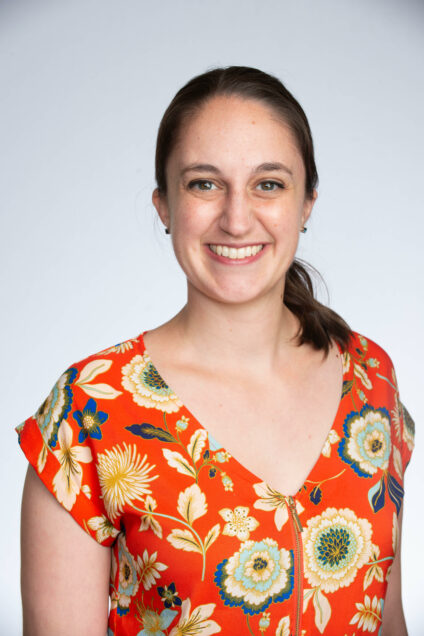
Laura Chanoux is a First-Year Social Impact MBA Candidate at the Questrom School of Business

Moving to Boston!
Students move to Boston for their MBA at Questrom from across many US cities, and countries worldwide. Concerns of finding housing, surviving Boston winters, and making friends are often top of mind! We’ve interviewed two students new to Boston to share their experiences with you.
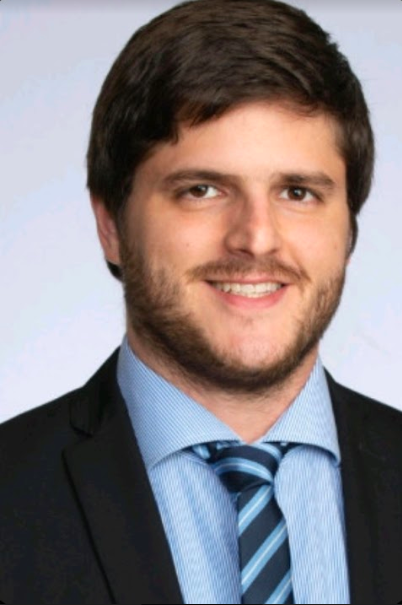
Facundo Goyeneche
1st year MBA
Hometown: Motevideo, Uruguay
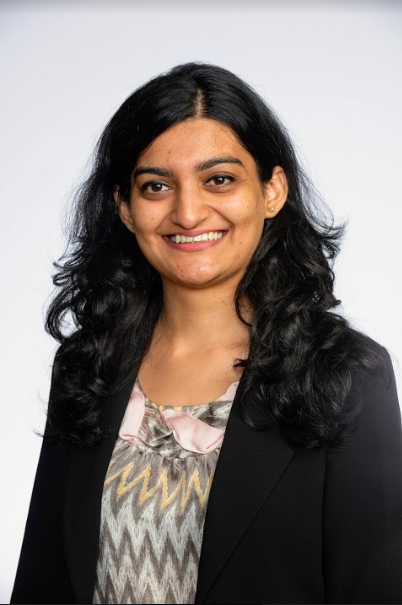
Minal Sariya
1st year MBA + MSDi
Hometown: Indore, India
Where are you from and how is Boston different?
Facundo: I moved to Boston from Montevideo, Uruguay, a city that’s bigger than Boston. The weather there is similar to Boston in Spring, Fall and Summer, but it’s not that cold in Winter. But I don’t mind the Winter in Boston very much.
In terms of transportation, Montevideo doesn’t have trains. Even though the T doesn’t always work perfectly, it’s nice to have. Boston is also a really safe city-- it’s not common to be mugged or see crimes, and I feel comfortable walking around here. Amazon packages are even left on the doorstep. I can’t imagine that in Uruguay!
Minal: I'm from a small city in India (Indore, India) and I have also lived in Bombay for majority of my adult life. Boston is the perfect mix of a small town and a metro. It is a very walkable city and really pretty, especially during the snow!
Where do you live and how do you get to school? How did you find housing?
Facundo: I live in Cambridge close to Harvard, and I bike to school everyday. It’s really easy to bike because there is a bike lane all along the Charles River, and it takes me about 10 minutes. When I don’t bike, I take the bus to school instead which takes about 30 minutes.
Minal: I live in Brighton, which is about 30 minutes from school. I take the B line to school everyday. It’s convenient because the T is right across from my apartment, but it can be late or break down sometimes. Living close to school is great because you’ll be near classmates and the commute won’t be too bad. I actually live with classmates. A few other student who were from India connected in the Whatsapp group and we got an apartment together.
I started my apartment search with Zillow, Apartments.com and Craigslist when I was back home, around April. I finally found a broker through Craigslist and found my apartment in July. Apartments can go quickly, so it’s important to start early! Most leases start September 1 so everyone is searching at the same time. You can also check Facebook marketplace if you’d like to sublet a room for the summer before committing to a lease.
Did you have any concerns about moving to Boston?
Minal: My biggest moving here was about the weather because I heard it got really cold for six months and can be depressing. It is cold here most of the time, but if you have a good support system with your new friends, and the right clothes, it’s not too much to worry about. I spoke to second years about the weather and visited stores which helped me get an idea of what winter gear I needed.
Have you had a chance to travel outside the city? Where?
Facundo: In the Fall around Halloween, I went to Salem and Gloucester for a day trip when a friend was visiting to see New England in the Fall.
I also went to New York and Miami for weekend trips and over winter break, I went on a ski trip to New Hampshire. It’s been great to have the chance to travel around the US during some of my spare time.
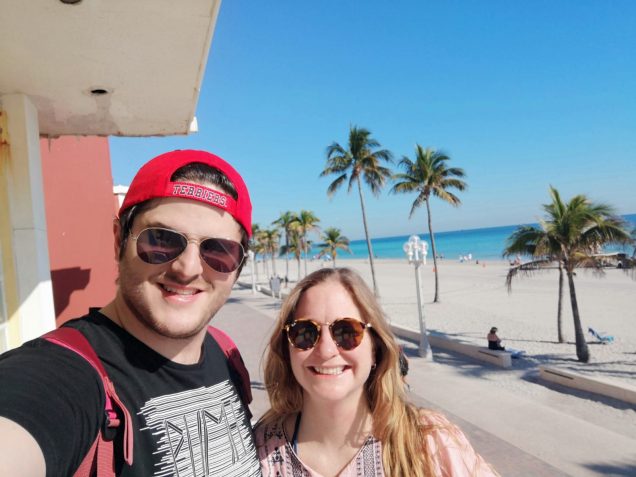
Minal: I’ve also had a chance to travel a bit. For winter break, I went on a road trip to Florida with a friend from India. We went to the Southern most point of the US and I even went skydiving spontaneously! It’s important to get out of town in the Winter, I had initially decided to stick around Boston for Spring Break because of interviews but after the intense capstone project in Mod 3, I decided to take a much deserved break and went for a weekend trip to New Orleans.
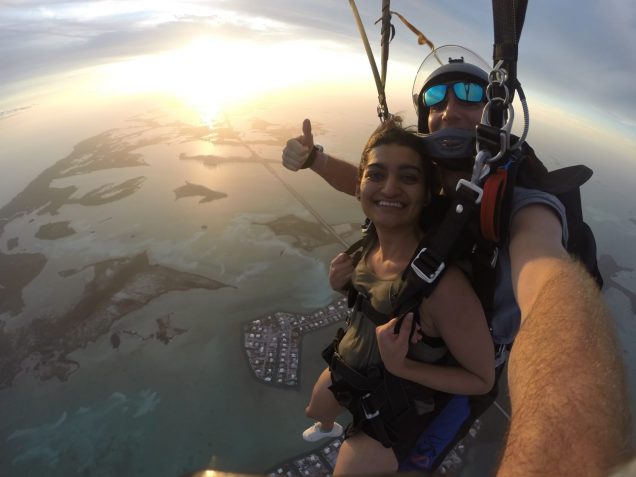
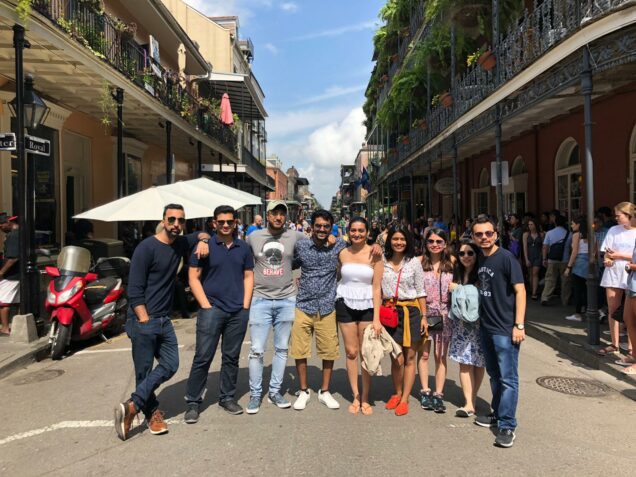
What are your favorite thing to do for fun in the city?
Facundo: I love nature so I like to visit Middlesex Fells Reservation, a huge park with a zoo just outside the city. I also love the Fenway area because I like the Red Sox-- I didn’t know anything about baseball before coming here, but I’m a huge sports fan so I really got into the sports when I arrived.
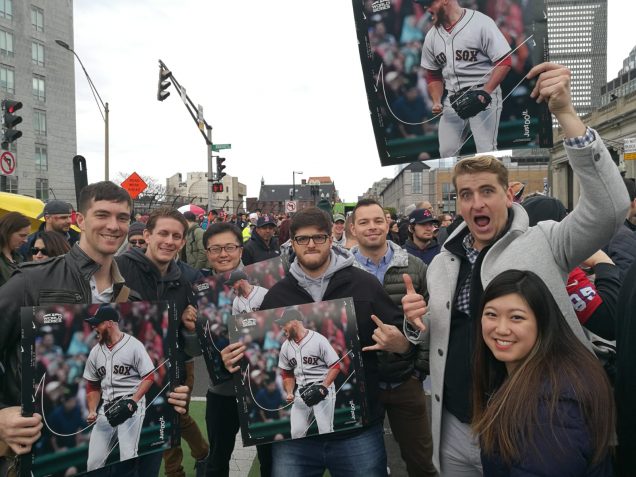
What surprised you most about Boston?
Minal: People in Boston are crazy drivers, and j-walking is very common. Since it’s a college town, you see kids and millenials all around. There’s something happening at all times of day.
Another great thing is that being an education hub with universities nearby, there are lots of events and it’s easy to network. This is a big advantage of being in Boston!
Facundo: When I moved here, I didn’t know what it would be like making new friends. Launch was a great way to meet people. Even though it was long I had the opportunity to get to know the people in class. All the friends I’ve made have been through Questrom, and I haven’t needed to make friends from outside school.
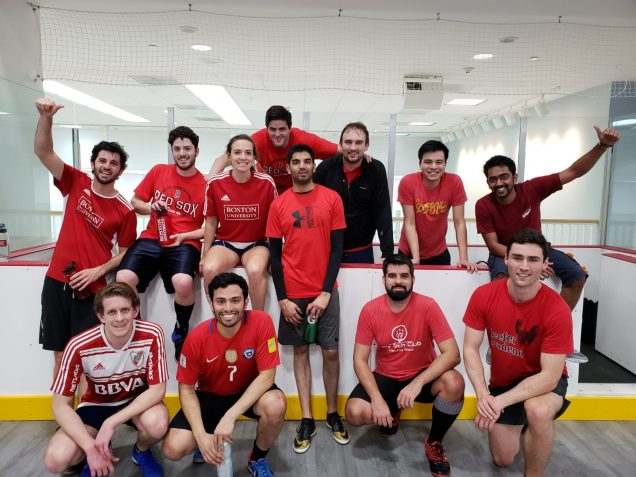
It also took some time to adjust to American culture-- everything related to food surprised me. People have snacks throughout the day, but at home we have 4 meals every day (dinner at 10 or 11). Here, we have dinner when the sun is shining, which was hard to get used to!
Something I didn’t know about Boston before moving here is “Allston Christmas.” Allston is a neighborhood with lots of students, and most of them move in and out on September 1st. On this day, lots of people give away furniture on the street. Almost all the furniture in my apartment is from the street, so I didn’t spend too much money on furniture. I did buy a new bed to avoid bed bugs, but everything else is great!
Is there anything else you think someone from your hometown/country would like to know?
Minal: It’s easy to get around in Boston, by foot, train, or bus. You definitely don’t want a car-- parking is expensive here.
Facundo: Boston is a pretty expensive city-- I try to save money where I can, like by biking to school, and I think twice before spending money when I go out. Even though Boston can be expensive, part of this is just the adjustment to not having a salary while in school.
We hope Minal and Facundo have convinced you that you, too, can survive Boston Winters and the other challenges of making this big move! If you have any questions about your move to Boston, please email connect@bu.edu.
First Year Life at Questrom
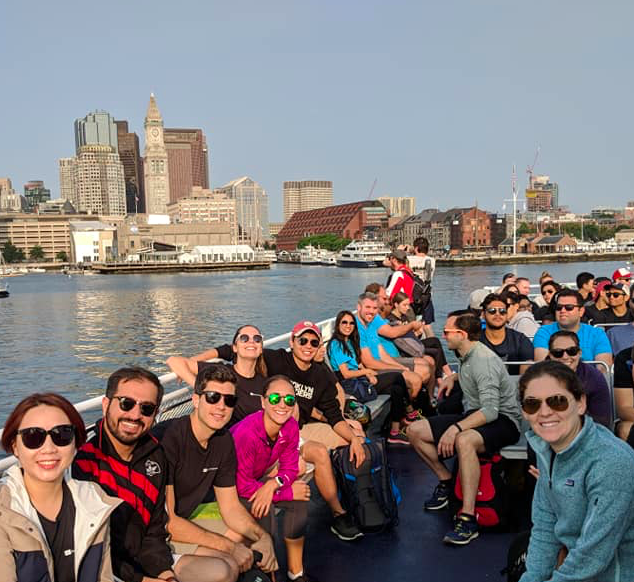
Your 1st year as a full-time Questrom MBA student is sure to bring lots of choices-- from clubs, to spring break trips, to electives, you’ll have many opportunities to carve your own path.
Coming back to grad school full-time is a major adjustment that provides both rewards and challenges.
Launch
Launch is Questrom’s 2-week orientation that gets your ready for a successful first year of your MBA! It is an incredibly exhausting but fun time that introduces you to all that Questrom has to offer. From a student BBQ to evenings at Cornwalls (Questrom’s local bar of choice), and from welcoming chats with professors and administrators to bonding with your new classmates, Launch really makes you feel a part of the community. You’ll have the opportunity to learn about clubs, campus safety, health insurance, and more. All these experiences mean that you’ll feel comfortable and ready to go once classes start.
Academics
A distinctive feature of first year life at Questrom is that all classes run on the quarter system (each quarter is called a “Mod”). The first three mods are comprised of core classes that you take alongside your cohort. Together, you will journey through quant-heavy Mod 1, work together on cases in Mod 2, and launch into your first live consulting project in Mod 3.
Each class meets twice a week for 2 hours and 45 minutes. Professors and TAs typically hold weekly office hours, as well as optional review sessions.
At the end of each mod, there is a cumulative project that combines all your learnings from the three classes you’ve just completed, which you will work with a team of 5-6 students. In Mod 1, you’ll act as a private equity firm looking to take over an underperforming company. In Mod 2, the whole class competes in a “Strategy Simulation”-- each team is a car company pitting themself against the rest of companies (teams) to gain market share and stock price. And finally in Mod 3, you’ll have the opportunity to conduct a consulting project with a real client! These projects challenge you to apply your skills. They really help solidify your learnings and teach you how to work successfully on teams.
Teaming
Questrom is well known for our strong emphasis on teaming. Each Mod project is conducted by a team of students in your cohort. Our teaming class begins during Launch, and meets a handful of times throughout the first year to teach you about different challenges your team is likely facing at that point in time (communication, embracing diversity, decision making). We take a hands on approach: we visited Thompson Island in the Boston harbor for a day of adventure education, took a trip to the Museum of Fine Arts, and went on a scavenger hunt throughout Boston.
A big focus of these teams is learning how to reflect on your contributions to a team and how to support the professional development of your teammates. This requires compassion, self awareness, and flexibility, as we all learn to be strong teammates and leaders together.
We are encouraged to treat these teams as real professional teams. We take time for team bonding (board game nights, team lunch, dinner at someone’s apartment). Openly talking through disagreements is encouraged. One of the best parts of teaming is the opportunity to make friends, especially with students you may not have met otherwise.
Community
One of the highlights of the Questrom experience is the community we build. Our classmates are incredibly genuine, hard working, supportive and fun. This is definitely somewhere you can come to make lifelong friends. Because the program is relatively small, it’s possible to get to know most of your peers at least a little. This creates an environment that goes beyond making a few close friends, but where everyone really supports everyone. A few examples of this community are:
- Cohort Cup- each cohort competes throughout the first year for the “Cohort Cup” title. Through sporting event, trivia nights, food drives, and bake-offs, each cohort has the chance to fight for the cup. While sometimes the competition gets hot, the Cohort Cup is ultimately a great example of the commitment students make to a fun and supportive community here at Questrom.
- Link Day- each spring, around 100 Questrom students participate in Link Day, a one-day non-profit consulting project. Students are put on teams of 5-6 and are paired with a local non-profit. This event is a great opportunity for students to work together to put their newly learned skills to work to help the Boston community.
- Internship Fund for Social Impact- the Internship Fund is a student led fundraiser in which students donate to support their peers choosing to take an unpaid or underpaid summer internship related to social impact. The event is a hallmark of the Questrom Community in which nearly 100% of students donate, many of whom pledge to “donate a day” of their internship salary.
We hope to see you on campus this Fall! If you have any questions about student life at Questrom, please email connect@bu.edu to set up time to speak with a student ambassador one-on-one.
Questrom Means Teamwork
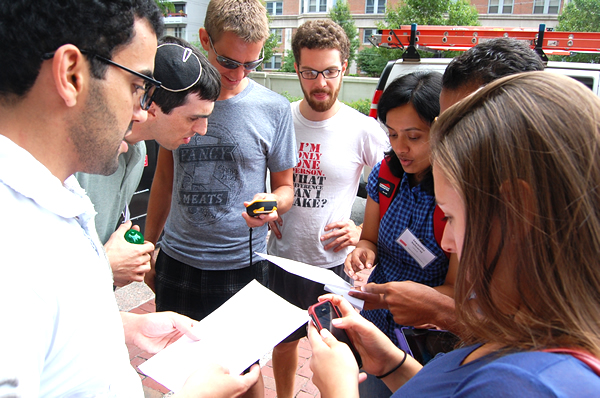
Somewhere towards the end of Mod 2, the second 7-week 3-class series in the first semester, it hits you. It’s a dizzying moment: you’re in the middle of StratSim (a week long management team simulation to create the most profitable company), you have marketing strategy and financial models racing through your brain, and bam--you’re a quarter of the way done with your Questrom MBA. By now, you have had the chance to get to know your classmates, your cohort, and your teammates and you will have learned that what they say is true: some of the best people in the world find themselves at Questrom.
From Boston to Shanghai: Clark Soucy, MBA ’18, Interns at Panda Capital
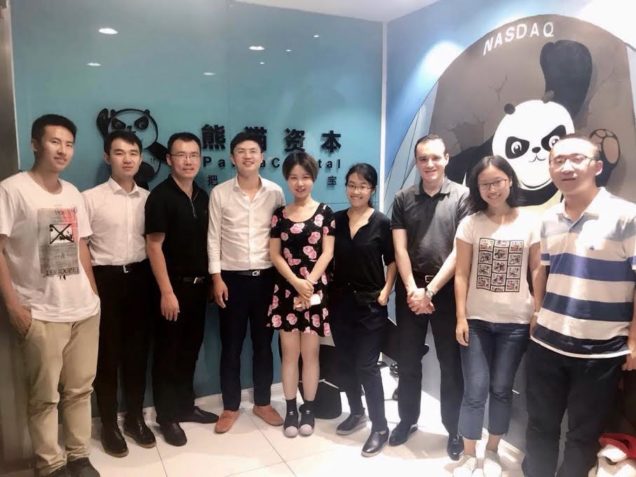
Over the summer of 2017, Clark Soucy (MBA '18) interned in Shanghai at a Chinese Venture Capital Fund, Panda Capital. Before enrolling at Boston University, he worked in Shanghai for three years at a Chinese Airline so he was excited to return to China for the summer. This internship gave him the opportunity to engage with the rapidly growing Chinese startup ecosystem and learn about the latest trends in Chinese business.
Shanghai, Beijing and many other Chinese cities are home to a rising number of startups with numerous local and overseas investment funds providing capital. The venture capital industry in China has a very similar model to that of the United States: VCs raise funds from investors which they then use to purchase equity stakes in new companies. The VC will then sell the equity holdings later to another investor or sell them during an initial public offering. Normally VC funds have a life span of 8-10 years as the funds sometimes need additional time to liquidate their holdings because some of the companies in their investment portfolio do not have an initial public offering.
Panda Capital was founded in 2015 and the fund's investment portfolio currently spans online consumer finance, peer-to-peer car rental, bike sharing, and other sectors. Clark's responsibility as an intern was to assist the fund founders evaluate potential investment projects. In practice, this meant conducting due diligence and market research on many of the prospective businesses the fund was looking to invest in as well as creating financial models to project a range for the expected return on investment.
While interning at the fund, Clark met many portfolio CEOs as well as entrepreneurs seeking funding for their new ventures. He personally tested many of the products and services offered by these companies, giving him insights into new commercial strategies and a new mindset for analyzing investment opportunities.
He also used his time interning at the fund to improve his ability to use Chinese to conduct business. The fund only invests in domestic companies so all of the meetings and presentations he attended were entirely in Chinese; He also used Chinese to communicate with his colleagues and conduct research. Clark plans to return to China to work after graduation so interning for Panda Capital was excellent preparation for his post-MBA career.
